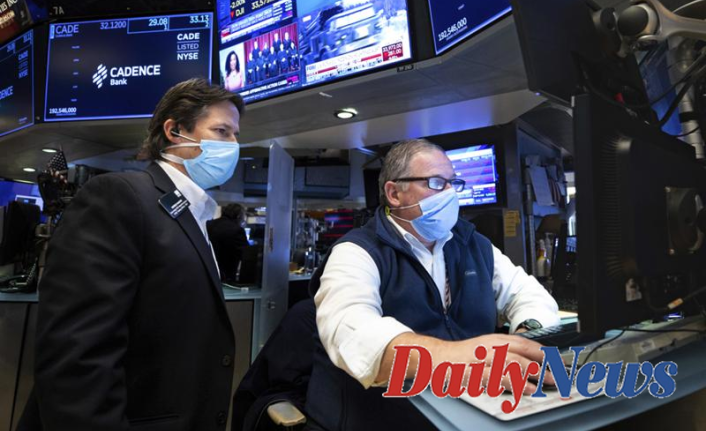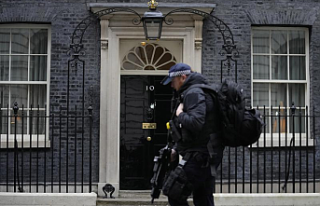Inflation has been hurting consumers and businesses, and the Federal Reserve will likely raise interest rates in 2022 to counter it. Investors worry that the Fed may be moving too slowly or too aggressive. Wednesday's policy statement by the central bank is released.
The threat of a virus pandemic looms over the economy, and it threatens to halt progress with each new wave. A potential conflict between Russia, Ukraine could push energy prices higher and force more countries to fight a war rather than COVID-19 and inflation.
As of 12:03 p.m. Eastern, the S&P 500 had fallen 2.3% Since Jan. 3, when the benchmark index reached a record high, the benchmark index has been steadily falling since then. The benchmark index is now closer to "correction", which market watchers define as a 10% drop from its peak.
The Dow Jones Industrial Average dropped 481 points or 1.4% to 33,886. The tech-heavy Nasdaq lost 3%. The index is currently in a correction and is down more than 15% from Nov. 19's high.
Major indexes saw a similar start Monday to trading. They were down for most of the day but experienced a late buying spree that pushed them higher. Barry Bannister (chief equity strategist at Stifel) said that the rebound might have been a "head fake". He said that the market is likely to see more declines.
The S&P 500 was able to make a small gain on Monday, but the VIX index, which measures Wall Street's nervousness, still remains high. UBS strategists wrote that this suggests that stress levels are continuing to rise in the system with markets moving in a high speed spin cycle.
The VIX futures contract indicates that investors are expecting high volatility in the short term, but lower volatility over the coming months. This is a change from last year's behavior.
Investors are worried about rising interest rates and technology stocks were once again the losers. Shares in high-flying tech companies as well as other growth stocks that are more expensive tend to be less appealing due to higher interest rates. Microsoft fell 3.5%.
Retailers, banks, and communications companies all suffered losses. Home Depot lost 2%, while Netflix dropped 5.2%. The U.S. crude oil price rose by 2%, which helped push energy stocks higher. Occidental Petroleum rose 4%. Utilities, and other segments that are less risky, held up better than the rest of the market.
Bond yields increased. The 10-year Treasury yield rose to 1.76%, from 1.74% on Monday.












